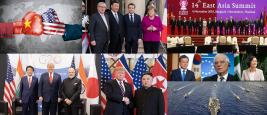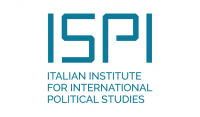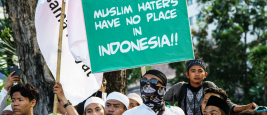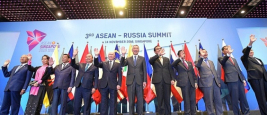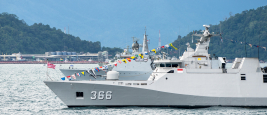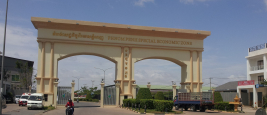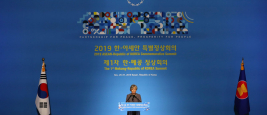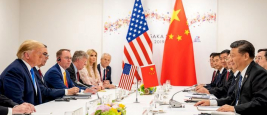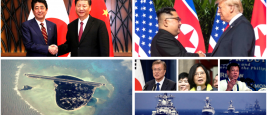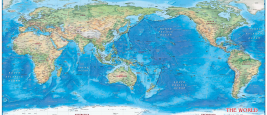In February 2020, the Ifri Center for Asian Studies and the Research Institute for Peace and Security (RIPS) held a conference on the Asian security environment.

Southeast Asia
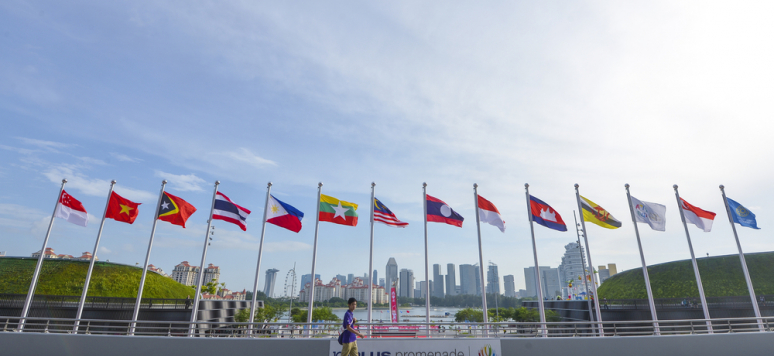
Over the past decade or so Southeast Asia has gone through multiple developments which usher in an era of alarming political uncertainty. While several countries were thought to be heading toward democracy (Myanmar, Thailand), recent events suggest that vested interests die hard and that defending citizens’ hard-won rights is a daunting task. In the wake of the health crisis other countries are faced with serious socio-economic difficulties which threaten their stability and wealth (Indonesia, Malaysia, Philippines). In a context of sino-US rivalry, each of the great powers seeks to push its own interests, potentially disrupting local stability. Southeast Asia has undoubtedly become a battleground for bipolar rivalry.
Through its research activities, Ifri's Center for Asian Studies aims to provide a better understanding of the evolutions and main trends of this regions' actors.
Senior Advisor, Center for Asian Studies
...South East Asia is an area of utmost importance for Japan’s economic, political and security interests, amounting to “a core strategic interest” for Tokyo.
This text was published in Politique étrangère in 1979, the year in which the French Institute of International Relations (Ifri) was created.
Despite Indonesia’s reputation for a traditionally moderate brand of Islam, religious conservativism is gaining considerable political traction in the lead up to this April’s presidential election.
In recent years, Russia has focused on developing its relations with Southeast Asia, particularly in the areas of economic ties and arms sales.
Indonesia’s Indo-Pacific strategy is driven less by a coherent national strategy than by a choice made due to the lack of alternatives resulting from Indonesia’s domestic and international weaknesses.
The Rohingya issue involves a complex national and regional history.
The Trump Administration’s Indo-Pacific security strategy is a case study in foreign policymaking under a non-unitary executive.
Over the past decade, an increasing number of emerging markets has joined the liquefied natural gas (LNG) import club.
There is no denying that the Mekong region has become an economic battleground where Japan and China are competing to gain and sustain economic influence in the region.
Technological Revolution and Regional Order in East Asia Webinar Series
Against an increasingly tense backdrop of geopolitical competition, a new wave of rapid technological change is likely to transform the regional landscape of East Asia.
Conversation on Technological Change and its Implications, with Audrey Tang, Digital Minister, Taiwan Videoconference
To conclude our webinar series on "Technological Revolution and Regional Order in East Asia", we will host Audrey Tang, Digital Minister of Taiwan, to discuss the scope of...
A New Player in the Indo-Pacific? South Korea’s New Southern Policy
President Moon launched the New Southern Policy as a key diplomatic initiative to strenghen the relationship with the Association of Southeast Asian Nations (ASEAN) and India.The comprehensive scheme is resting on the “three Ps” of People, Prosperity and Peace.
Conference with Harsh Vardhan Shringla, Foreign Secretary of the Republic of India
Conference/debate with Harsh Vardhan Shringla, Foreign Secretary of the Republic of India.
Debate chaired by Thomas Gomart, Director of Ifri.
The Belt & Road Initiative (BRI) in Southeast Asia after COVID-19: Towards a New Deal? Les Jeudis de l'Ifri
A "Les Jeudis de l'Ifri" videoconference around Sophie BOISSEAU du ROCHER, Associate Research Fellow at Ifri's Center for Asian Studies.
Has Covid-19 Contaminated Value Chains in East Asia? Les Jeudis de l'Ifri
A "Les Jeudis de l'Ifri" videoconference around Françoise NICOLAS, Director of Ifri's Center for Asian Studies.
QUAD 2019 Annual Meeting, London
Since 1983, the QUAD gathers every year, the SWP, RAND Corporation, Chatham House and Ifri. The QUAD was set up during the Euromissile crisis and brings together European and American diplomats, military officers, journalists and research fellow to debate on current geopolitical issues....
The US-China Rivalry: Adjusting Strategies in Asia and Europe Conference
The deepening strategic rivalry between the United States and China has repositioned geopolitics at the center of the international system today.
Power Competition and Regional Stability in Asia
Annual Conference of Ifri's Center for Asian Studies
Approaching the Indo-Pacific: American, French, Indian and Japanese Visions
The Indo-Pacific has become a buzzword since 2017, as it came to be used by all major players in the region stretching from East Africa to the Pacific.
Aucun résultat





